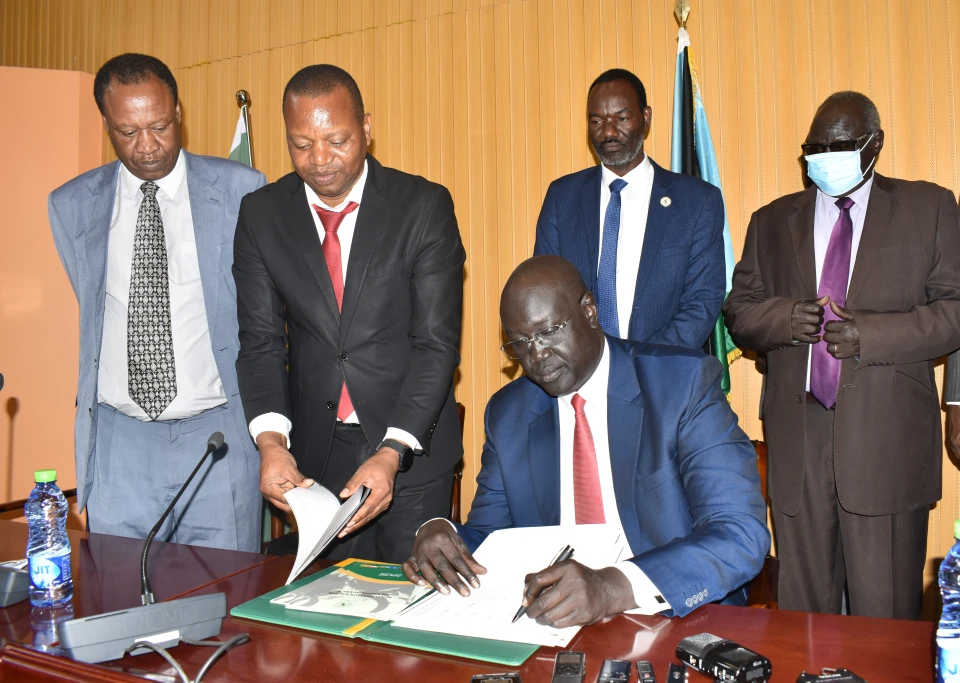
South Sudan on Friday has signed the regional protocols on Free Movement of Persons and Transhumance.
The document by International Governmental Authority on Development focuses on enhancing the conducive environment for pastoralism and free movement of persons, rights of establishment and residence in IGAD Member States.
It is also to formulate harmonious facilitative and regulative regional framework on transhumance within the region.
“The protocol is to exploit the full social and economic potential of the pastoral system by allowing free, safe and orderly cross-border mobility of transhumant livestock and herders in search of pasture and water as an adaptation mechanism to climate change and weather variability,” the document reads.
South Sudan Minister of Foreign Affairs and International Cooperation signed the two protocols.
“We are happy to sign these protocols that were approved by IGAD member states because this is for the benefit of the IGAD countries. The free movement of persons and livestock will help our economy and will help our country grow. ” Mayik Ayii Deng underscored.
“The pastoralists are seasonal; they are not coming to stay forever. They come for seasonal grazing, and they go back to their country of origins.”
The Minister of Livestock and Fisheries, Anyoti Adigo acknowledged that the framework will help the country develop frameworks for guiding cattle movement across the borders.
“The movement will be guided by health certificate because we don’t want cattle from different countries coming to affect other countries if they have got diseases. So, there is a need for the movement of cattle to be guided by the certificate because the diseases of cattle can affect human also.” Anyoti stated.
Articles 3 and 20 of the protocol stresses on the need for Transhumance Certificate (ITC) for all transhumant livestock and herders moving freely and safely across points of entry and departure from each country in search of pasture and water.
The certificate includes information such as livestock ownership, number, composition and respective health status of both cattle and herders.
“It’s for our advantage because we supply livestock products, meat, milk, leather and bones and we have got a lot of them, we need to develop that sector. It was also found that it contributes to our GDP like in the case of South Sudan, up to 30% of GDP comes from livestock and up to 50% of agriculture comes from livestock in term of looking at the value addition.” concluded Dr. Adan Bing, IGAD Deputy Director of the Center for Pastoralists Affairs and Livestock Development.